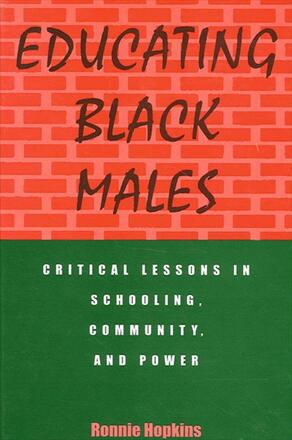
Educating Black Males
Critical Lessons in Schooling, Community, and Power
Alternative formats available from:
Offers insights into the creation of more effective and empowering schools and classrooms for Black males.
Description
Educating Black Males: Critical Lessons in Schooling, Community, and Power offers insights into how we can create more effective and empowering schools and classrooms for Black males. In addition, it examines the larger social reality of American African males and analyzes theoretical contexts of educational theory and practice in alternative education programs and crisis intervention strategies for Black males. It promotes strategies for enhancement of self-esteem and motivation for learning in Black males, thereby analyzing power relations in the classrooms, schools, and community. It is designed as a resource for those concerned with helping American African males to break free from and defy negative stereotypes and fatalistic imaging.
Ronnie Hopkins teaches in the Department of English and Foreign Languages, Norfolk State University. He is the CEO and President of A World of Difference: A Multicultural Education Consultation Group, located in Chesapeake, Virginia.
Reviews
"It did not take Hopkins' project to convince me that the state of Black males is in crisis, but I had heretofore seen the proposal for all male academies as alternative education. Thanks to this book I now perceive the work this project describes as crisis intervention designed to promote self-esteem and motivation to learn.
"The author is thorough in his presentation of the history of immersion schools. Furthermore, his own first-hand experiences teaching at the Malcolm X Academy provides him with an insider's lens. Hopkins does not attempt to show a causal relation, but rather through in-depth interviewing procedures with students, parents, and school personnel at all levels, he explores the processes by which young Black males in the immersion schools under study learn agency amidst social structures that have tended to count them out. There is much to like about this book. " — Diane DuBose Brunner, Michigan State University